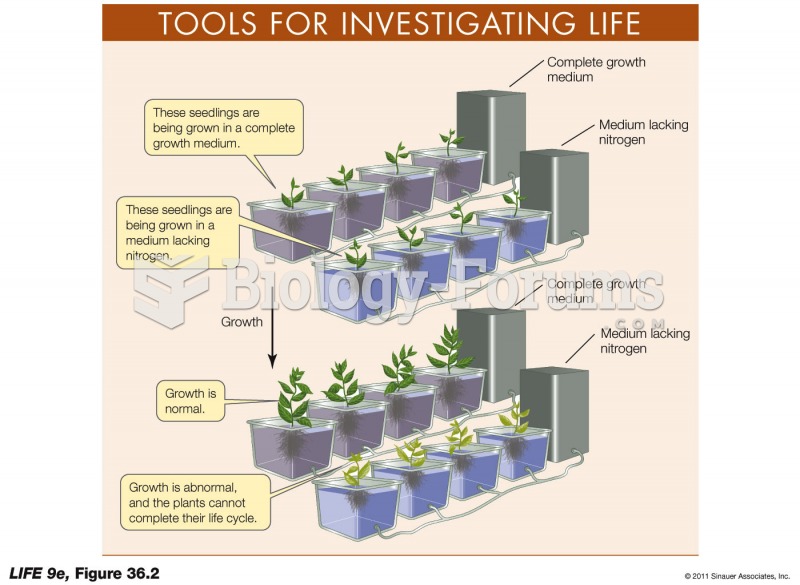|
|
|
Addicts to opiates often avoid treatment because they are afraid of withdrawal. Though unpleasant, with proper management, withdrawal is rarely fatal and passes relatively quickly.
IgA antibodies protect body surfaces exposed to outside foreign substances. IgG antibodies are found in all body fluids. IgM antibodies are the first type of antibody made in response to an infection. IgE antibody levels are often high in people with allergies. IgD antibodies are found in tissues lining the abdomen and chest.
After 5 years of being diagnosed with rheumatoid arthritis, one every three patients will no longer be able to work.
Thyroid conditions cause a higher risk of fibromyalgia and chronic fatigue syndrome.
Drying your hands with a paper towel will reduce the bacterial count on your hands by 45–60%.







